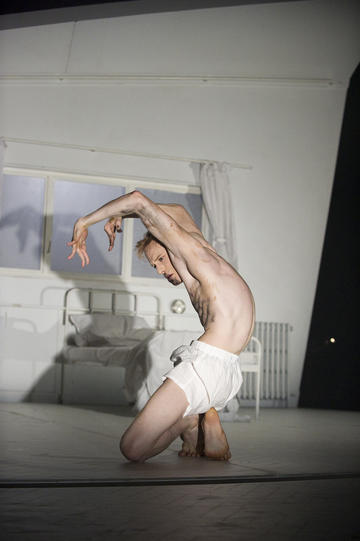The Kafka Undergraduate Essay Prize
About the Essay Prize
The annual Kafka Undergraduate Essay Prize competition has been run by the Oxford Kafka Research Centre since 2024 and is generously funded by Wadham College alumnus Nigel Jones. The competition is open to students who are currently enrolled in a course of German (single honours or with another subject) at a university in the UK. All entries are reviewed anonymously by a panel of judges based at the Oxford Kafka Research Centre. There is a different theme every year and the winning essays can be found below.
About the 2026 Competition

Prize money: £1,000
„Die Nachmittage, die ich mit den Haaren verbrachte.“
(Kafka’s diary, 29 March 1912)
The Oxford Kafka Research Centre is pleased to announce its 2026 Kafka Undergraduate Essay Prize. This year’s competition invites undergraduate essays that explore bodies, broadly defined, in Kafka’s writings and in the cultural and medical worlds that surround them.
As the above quote shows, Franz Kafka was obsessed with the body – both his own and those of others. Human and animal bodies loom large in his work, and very often these are bodies out of the ordinary or out of control, with Die Verwandlung’s Gregor Samsa one of many examples. His diaries are full of passages describing people’s corporeality, while his novels and short stories repeatedly return to the body’s comforts and discomforts, its care and neglect, its transformations and limitations. The above diary entry gestures toward the intimate, sensorial and reflective experience of bodily routine; it also opens onto broader questions about hygiene, self-fashioning, health movements, and how bodies are represented, regulated and imagined in the modern age. We welcome essays that treat Kafka as their main focus or that pursue a comparative approach, reading him alongside other texts, artforms or media or by relating his writings to cultural and medical debates in the modernist period (c. 1890–1945).
Submissions may address any topic that examines bodies in relation to Kafka’s work. The following list of potential topics is just meant as a guide and inspiration:
- Movement, performance, and embodiment: Exercise, sport, dance, labour, paralysis, immobility; the body as social performance and a site of expressive or constrained movement.
- Desire, gender, and reproduction: Sexuality, gendered embodiment, and reproductive themes that shape bodily anxieties, identities, and relationships.
- Metaphorical, hybrid, and non-human bodies: Bodies imagined as machines, animals, insects, or architectural forms; corporeal metaphors and the limits of language in representing embodiment.
- Bodies shaped by environment, systems, and material culture: Urban and architectural spaces, legal and administrative structures, tools and prostheses, food and appetite—all the material and institutional forces that mediate bodily experience.
- Everyday bodily practices and self-fashioning: Domestic rituals, hygiene, grooming, diet, clothing and disguise, and other routines through which characters cultivate, discipline, or present their bodies.
- Health, illness, and medical authority: Regimes of health and Lebensreform culture; medicalized spaces; diagnosis and surveillance; sickness, disability, fatigue, and the body under clinical or bureaucratic observation.
Entrants are encouraged to pick one of these angles (or propose another relevant line of enquiry) and to explain briefly in their essay how their topic connects to Kafka’s texts and to the broader cultural or intellectual contexts of the time.
Each entrant must choose one of the above topics and may submit only one essay. Essays may focus solely on Kafka or compare his writings to other works (literary and non-literary) from the modernist period (1890-1945).
Eligibility: Entrants must currently be enrolled in a course of German (single honours or with another subject) at a university in the UK.
Language of the essay: English
Quotations and references to primary and secondary sources: All quotations from Kafka’s work must be in the original German and use a reliable edition (ideally based on the Fischer Kritische Ausgabe). The essay must have a bibliography including all sources used, with separate sections for primary sources and criticism.
Maximum length: 2,500 words excluding bibliography and footnotes.
Submission: Please submit your essay as a PDF by Monday 6 April 2026, 12:00 noon to: kafka@mod-langs.ox.ac.uk
In the covering email please include the following declaration (exact wording required):
“I confirm that the essay is my own work and does not include unacknowledged material produced by others or by AI tools.”
Also include your full name, university, degree course and year of study.
The Oxford Kafka Research Centre is grateful to Nigel Jones for generously funding this prize.
Winning Essays
2025 - Theme: Identities
First prize:
Joint second prize:
2024 - Theme: Community
Joint first prize:


